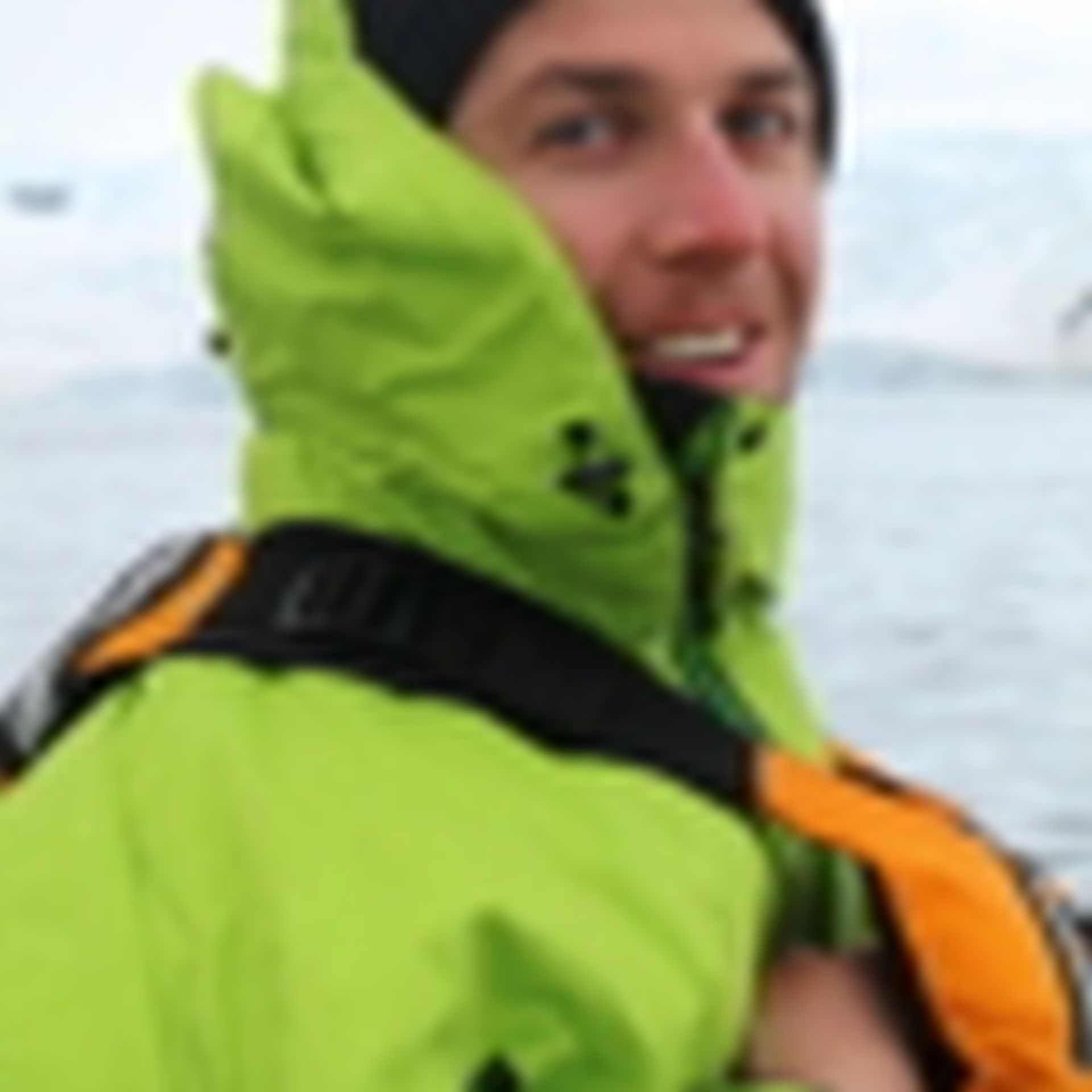Just Do It!
After a short break and some time to process his experience in Antarctica, we caught up with the Inspiring Explorers’™ Expedition Team Leader Marcus Waters to get his perspective on the expedition, and find out about the highlights of his trip, and the big challenges he faced.
About Marcus
Marcus recently joined Antarctic Heritage Trust as General Manager Commercial and Partnerships after more than 20 years in Human Resource Management and People Development roles. Prior to working in the corporate world, he was an outdoor instructor and assessor at the Sir Edmund Hillary Outdoor Pursuit Centre. Marcus is also an explorer, and with his adventure team in the 2000s, completed a number of world first expeditions. He was the first person to complete an extended sea kayak journey in Antarctica, paddling over 800km from the northern tip of the Antarctic Peninsula, past the Antarctic Circle to the base.
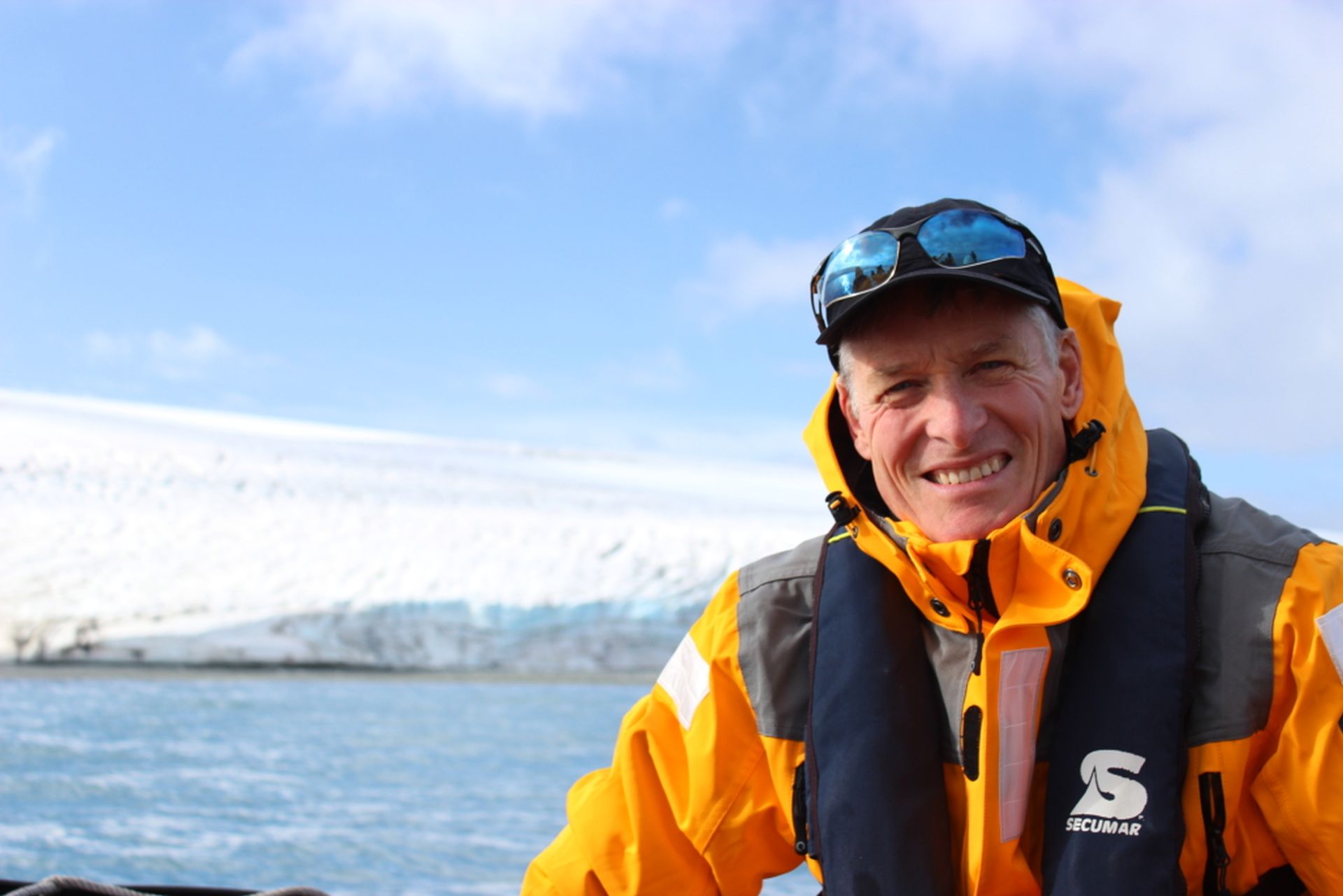 Owain John/ Antarctic Heritage Trust
Owain John/ Antarctic Heritage Trust Marcus in Antarctica
What preparation went into the trip by Antarctic Heritage Trust?
It started with the challenging selection process to distil several hundred applicants down to just five. We ended up selecting a great team of impressive, passionate young people from diverse backgrounds and cultures, who in their own different way, each contributed something unique to the whole team dynamic. While going to Antarctica is the goal, there is a whole life cycle attached to the expedition, which includes team building, relationship building, planning, the event itself, then the outreach on the explorers’ return. All are such critical components. Our Team Building Weekend, a couple of weeks prior to the expedition, was held in Auckland. It really helped our team members to get to know each other and bond, and we had some good conversations around team culture, working together as an effective group, discussing explorer outreach, and setting ground rules. There was also a huge emphasis on safety, protocols, systems, and equipment, which require months of planning.
What were your favourite parts of the trip?
I’ve been to the Antarctic Peninsula a number of times, so it was great for me to share the incredible Antarctic experience with a great group of young Kiwis, who might not otherwise have had the opportunity to go. A particular highlight was witnessing the growth of Jaylee and A’aifou, a couple of students joining us under our partnership with Sir Edmund Hillary Collegiate, who had never seen snow before. They were in a completely different world and developed their confidence to the point where they were standing up in front of groups delivering talks and presentations. The haka they taught the other team members and led in performance in front of the other guests on the ship was amazing. Jaylee spoke passionately about the meaning and cultural importance of the haka before the performance, and I received lots of positive feedback from the other passengers on the ship about the team.
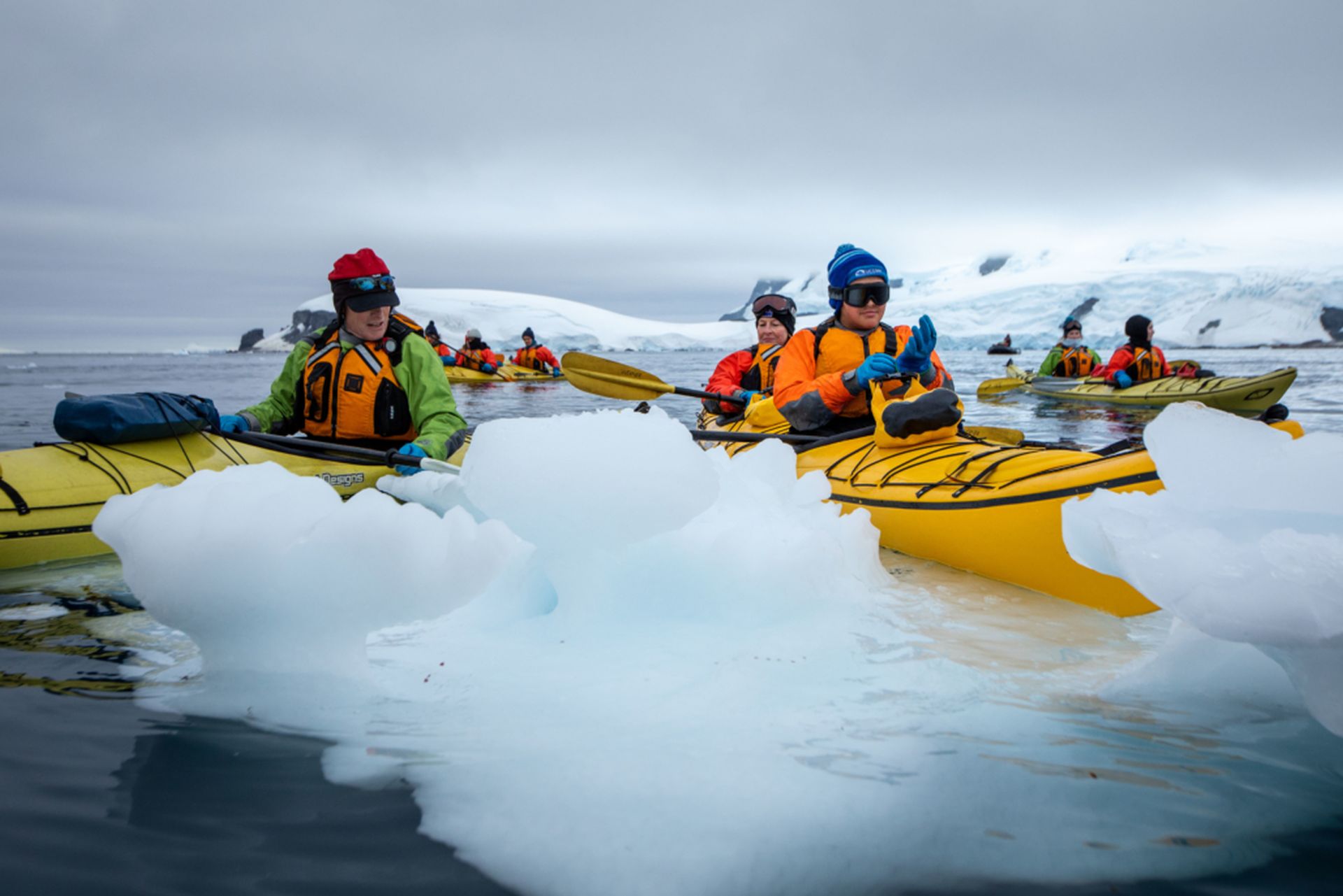 Mike Dawson/ Antarctic Heritage Trust
Mike Dawson/ Antarctic Heritage Trust Marcus, Jaylee and Shauna Kayaking in Antarctica
Which sights, sounds, feelings and experiences of Antarctica stand out as you reflect back on your experience?
Antarctica is such an unworldly, incredible place. We had a range of weather conditions, from cold, clearer days, to misty murky days, which showed our explorers the changing face of Antarctica and what it is like to explore there. To see the mountains and glaciers coming down to the sea, icebergs floating in the mist, and having encounters with amazing wildlife such as humpback whales, Weddell seals, a leopard seal and a crabeater, were surreal experiences for everyone.
What was the most challenging part aside from the COVID-19 disruption? How did you conquer this?
The team element is very important, as having done a number of these overseas expeditions in trying conditions, the difference between a successful and unsuccessful experience can often come down to whether you had a good time with your teammates or not, irrespective of whether or not you achieve your goals. Making sure our diverse team in terms of age, outdoor experience, and capability, gelled well together was a priority. It was really important to find ways for them to connect and build relationships through their shared experiences on the expedition.
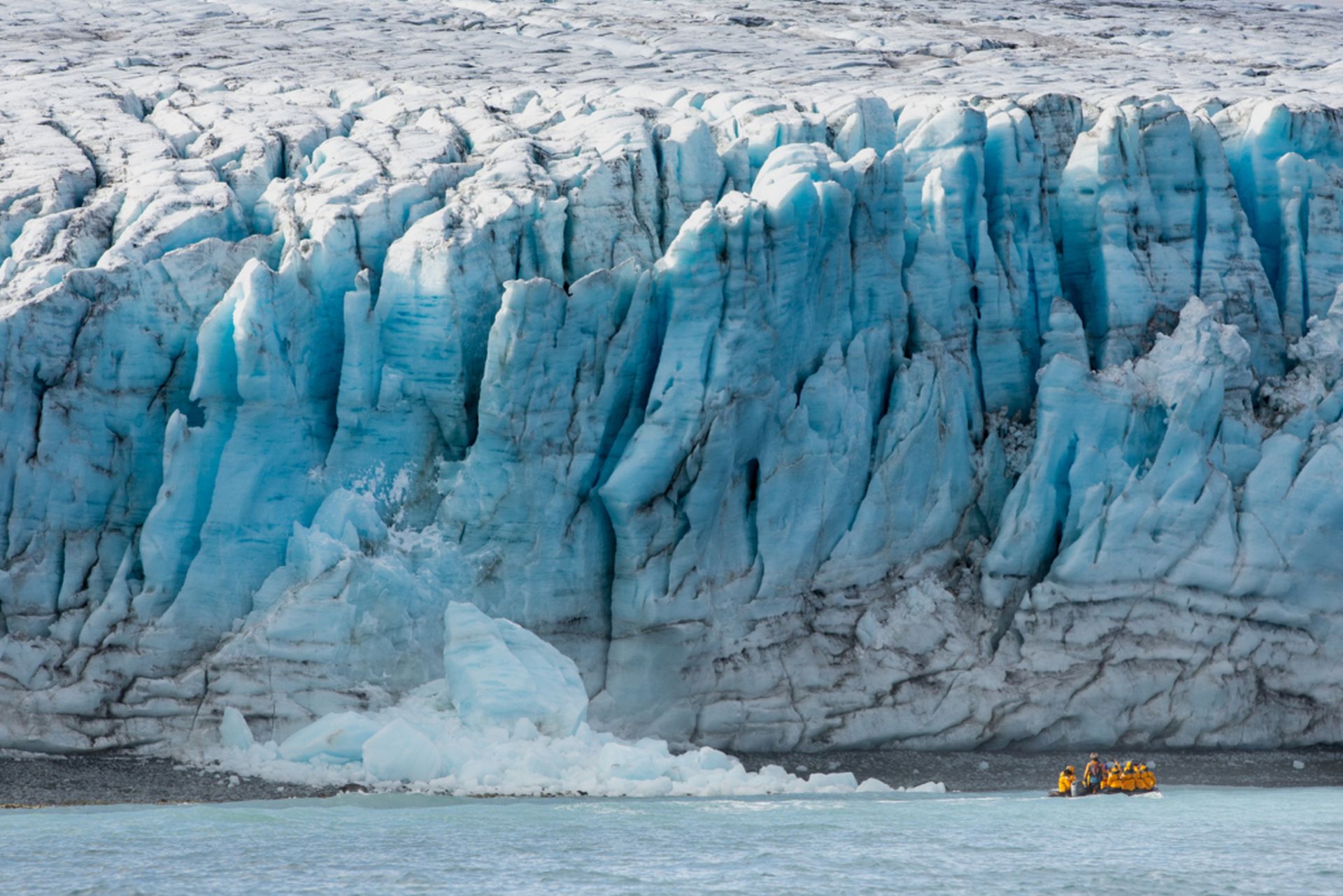 Mike Dawson/ Antarctic Heritage Trust
Mike Dawson/ Antarctic Heritage Trust Glaciers to Ocean
How did the expedition make you reflect on your previous Antarctic expedition and also on the historic explorers?
I enjoyed being able to share some of my real-life stories with the Inspiring Explorers. In 2001, I paddled 800km down the length of the Antarctic Peninsula and wrote a book about it called The Frozen Coast. One day, on the Inspiring Explorers’™ Expedition, we went into a bay and I could see a small headland where we had camped back in 2001, just three guys and our kayaks. It was quite a different from my experience in 2020, being based on a ship.
During the expedition, the team watched a number of presentations on board the ship, including many about the historic explorers on both sides of the continent. Reflecting on the historic explorers gave us all an appreciation of the conditions and challenges they had to endure, whether in the pursuit of science, to satisfy their curiosity, or if they had lofty goals like going to the South Pole. Our explorers were given a taste of this experience at a personal level, and I’m sure this led to even greater admiration for the early polar explorers, who had to endure far more than us, with the most rudimentary of shelter and equipment.
How did you and the team deal with the disruption to your trip caused by the COVID-19 pandemic?
One of the definitions of a great adventure or expedition is that it doesn’t have a completely certain outcome. Our team responded really well when we found out we were to be quarantined on the ship off the coast of Argentina for a week. This caused major disruption to our flight schedule, with our original booking from Buenos Aires to Auckland cancelled. During quarantine, when our Executive Director, Nigel Watson and the Antarctic Heritage Trust team were working hard to secure us flights home, the Inspiring Explorers’ team worked in really well together. We put our explorers’ profiles up on the ship’s noticeboard and had lots of positive comments from passengers about how much they enjoyed reading about our young people and their backgrounds and sharing conversations with them. We gave presentations for the other passengers, such as Owain talking about Squawk Squad, Shauna sharing her sailing adventures, and I talked about my earlier kayak expedition. Our explorers were missing their family and friends, but I think because we had invested in the team culture and team spirit, they were in good stead to deal with the uncertainty of getting home. The Trust did a fantastic job of securing us flights back to Auckland, via Santiago and Sydney. When we finally arrived back to New Zealand the world was a very different place than what it was when we headed away!
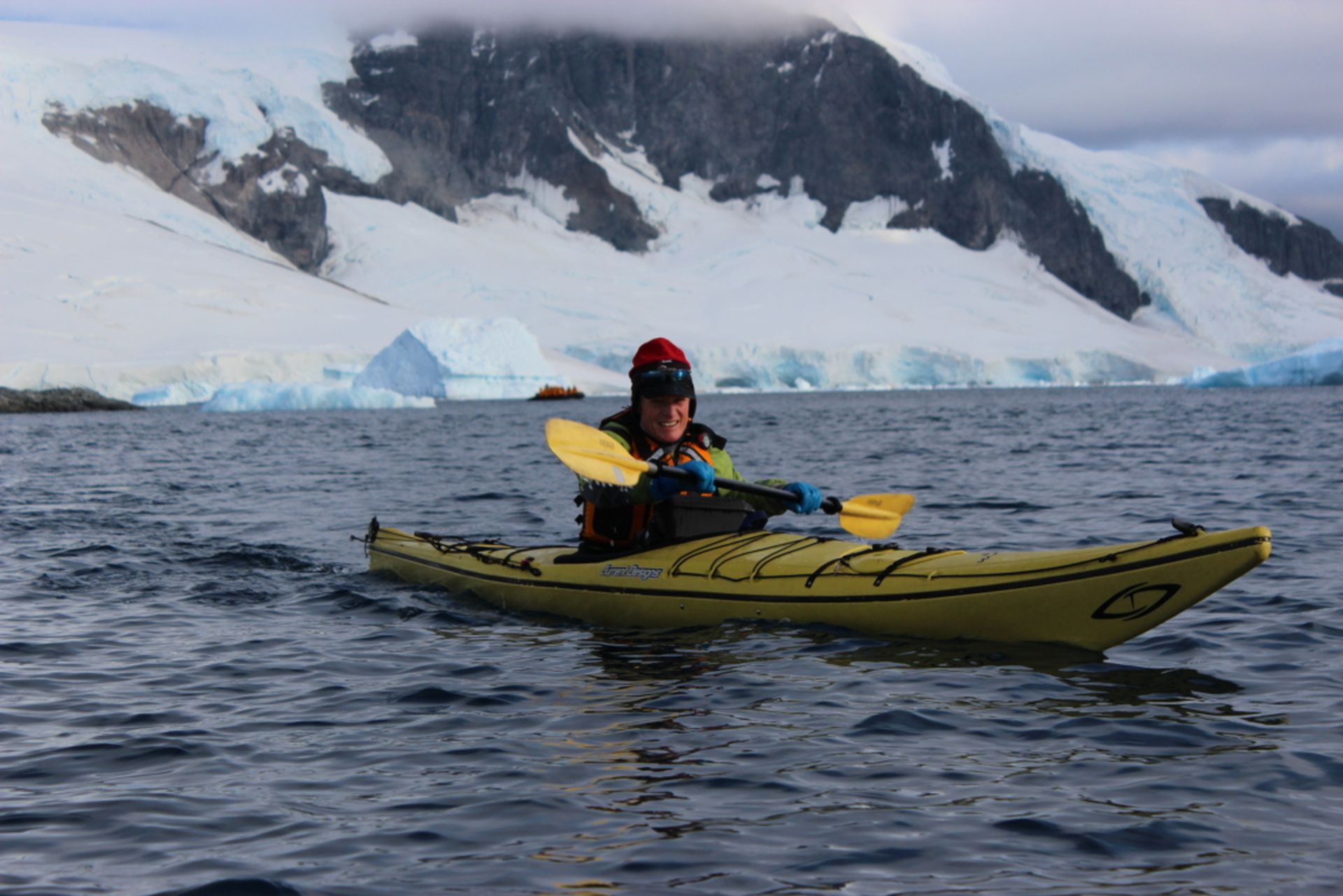 Owain John/ Antarctic Heritage Trust
Owain John/ Antarctic Heritage Trust Marcus Kayaking in Antarctica
Do you have any advice for future expedition members?
Just do it! This experience represents a rare opportunity to experience a place few other people get to see, while engaging with some other dynamic and interesting young people from around New Zealand. If you have a sense of wondering about what it is like to step outside your sphere of experience and poke your nose into the unknown, this expedition provides an opportunity for you to do just that.
Is there anything else you would like to add?
These days, thanks to technology, the world can seem a much smaller place than it was 100 years ago. However, I think it is important that now, more than ever we find avenues to pursue exploration and venture into the unknown – to physically and emotionally experience some of these places that an online or television experience can’t provide.
Antarctica is an important part of New Zealand’s history and overseas interest and is at the forefront in terms of climate change. The experiences our young explorers have in Antarctica helps them to develop an affinity for the continent, and start to understand what it means when they hear about things like glacial melt, or ablation of the glaciers. Our explorers become important advocates, as young people of influence, who have the potential to communicate their sense of wonder about Antarctica, their connection to the history and spirit of polar exploration, and what they learned about the history, wildlife, science, along with the importance to the world today of this amazing continent.


